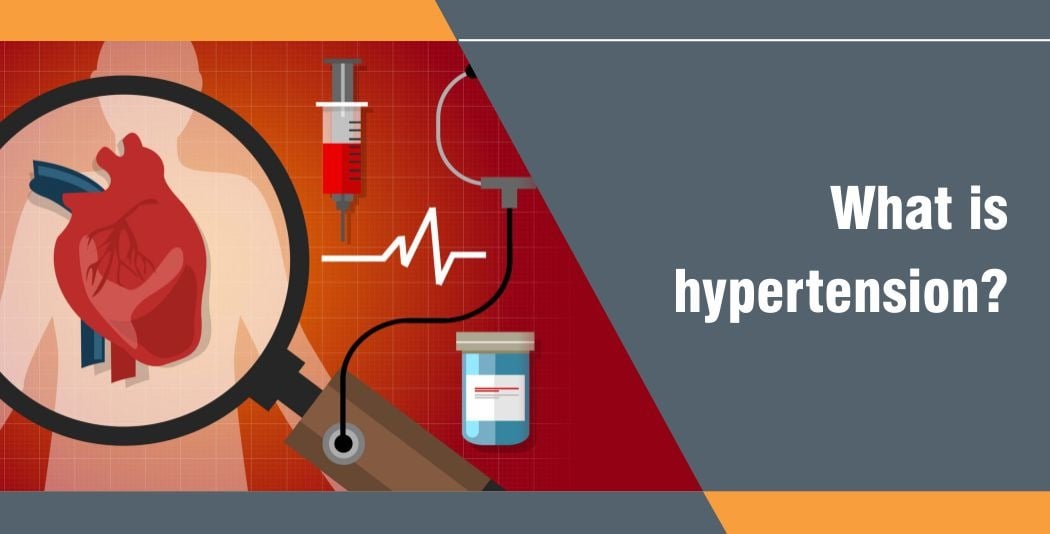Understanding Hypertension: A Complete Guide to Protecting Your Heart and Health
April 29, 2025

First, you should understand the meanings of ‘hyper‘ and ‘tension‘. Together, they represent greater tension. There is tension on the walls of your blood vessels. This pressure determines the force with which the heart pumps blood. If the pressure exerted by the arteries is high, the heart should pump with a correspondingly high pressure to send blood racing through the body. Forcing blood through tight vessels with greater pressure poses a significant strain on the heart. If this pressure is not controlled, it would lead to heart disease, stroke, or kidney failure.
Why Does Your Blood Pressure Increase?
One of the main reasons for high blood pressure is age. As you age, your blood vessels become thicker and less elastic. This could be due to deposits of plaque inside the walls of the blood vessels. As the vessels become narrower and more constricted, it becomes increasingly complex for blood to flow through them. Therefore, the heart must increase the pressure at which it pumps out blood. This puts immense strain on the heart.
Risk Factors that Increase Your Chances of Getting Hypertension
- Age over 45.
- Family history or blood pressure.
- Certain kidney or adrenal diseases.
- High intake of salt.
- Excess weight.
- Stress.
- Alcohol.
- Pregnancy.
- Certain medications.
Dangers of Hypertension
Hypertension is often silent. It progresses stealthily. As you are unaware of it, you don’t treat it or modify your lifestyle, thus your heart, lungs, kidneys, brain, etc., are at great risk. Blood pressure readings are typically expressed as a fraction. The normal reading is 120/80. 120 is the pressure in the arteries when your heart pumps out blood. 80 is the resting pressure between one beat and the next when your heart is filling with blood. There may be slight variations from person to person, but a chronic pressure of between 130/81 and 139/89 means you are in stage 1 of hypertension. A reading over 140/90 means you are in stage 2, and a reading of over 180/120 means you are in a hypertensive crisis, a medical emergency that can cause a heart attack, stroke, or kidney damage.
Symptoms of Hypertension
Generally, blood pressure does not have any symptoms, but if it gets too high, then you will have:
- Severe headache.
- Nosebleed.
- Breathlessness.
- Irregular heartbeat.
- Blood in the urine.
- Pounding in your chest, neck, and ears.
- Chest pain.
- Vision problems.
- Fatigue.
These symptoms occur only when your blood pressure is extremely high. You will need a regular check-up to find out if you have hypertension, to help you treat it early to avoid this extreme, life-threatening condition.
How to Treat or Prevent Hypertension
Dietary Guidelines
To help control hypertension, a diet rich in fruits, vegetables, whole grains, nuts, low-fat dairy products, fish, and lean meats is highly beneficial. These foods provide essential nutrients, including potassium, fiber, and healthy fats, that support heart health and help maintain optimal blood pressure levels. At the same time, it is vital to limit the intake of salt, alcohol, sweets, and saturated fats, as these can contribute to high blood pressure and other cardiovascular risks. A balanced approach that emphasizes natural, nutrient-dense foods while reducing processed and high-sodium items can significantly improve the effectiveness of managing hypertension.
Exercise
Regular exercise helps reduce hypertension. A 30-minute workout most days of the week goes a long way in preventing and controlling blood pressure. Brisk walking, cycling, gardening, and muscle-strengthening exercises that target all major muscle groups are ideal for staying healthy.
Meditation / Yoga
Meditation, yoga, and breathing exercises help you relax and destress. They work wonders in controlling your mind and help reduce the tension in your body and mind. This helps control blood pressure.
Medications
Medications play a significant role in controlling blood pressure. You will need to have regular check-ups with your doctor to monitor your health and blood pressure. This is necessary to adjust your medications according to the changing needs of your body. If you can keep your blood pressure under control with lifestyle changes, then you will be able to reduce your reliance on medication.
Get a regular check-up if you are over 40 or have any of the risk factors. Rela Hospital is a quaternary care hospital that offers comprehensive treatment for all lifestyle diseases. Our multidisciplinary approach to hypertension provides excellent management of blood pressure and total protection against heart conditions, kidney disease, and stroke.







